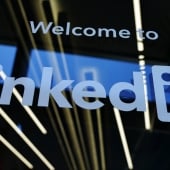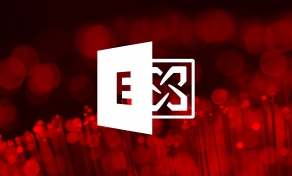-
Apple creates Private Cloud Compute VM to let researchers find bugs
Apple created a Virtual Research Environment to allow public access to testing the security of its Private Cloud Compute system, and released the source code for some "key components" to help researchers analyze the privacy and safety features on the architecture.
- October 24, 2024
- 06:48 PM
 0
0
-
Henry Schein discloses data breach a year after ransomware attack
Henry Schein has finally disclosed a data breach following at least two back-to-back cyberattacks in 2023 by the BlackCat Ransomware gang, revealing that over 160,000 people had their personal information stolen.
- October 24, 2024
- 05:39 PM
 0
0
-
Sponsored Content

Free shadow SaaS inventory + security insightsDiscover all SaaS accounts ever created by anyone in your org, in minutes, along with insights on security risks and spend. Save time, money and effort by curbing SaaS sprawl and automating tasks like offboarding and user access reviews. Free trial.
-
Windows 11 24H2 KB5044384 update fixes sfc /scannow corrupt file errors
Microsoft has released the optional KB5044384 preview cumulative update for Windows 11 24H2, which includes twenty-four changes, including a bug that caused the sfc /scannow command to always display corrupt file errors.
- October 24, 2024
- 04:46 PM
 0
0
-
Insurance admin Landmark says data breach impacts 800,000 people
Insurance administrative services company Landmark Admin warns that a data breach impacts over 800,000 people from a May cyberattack.
- October 24, 2024
- 03:10 PM
 0
0
-
Ireland fines LinkedIn €310 million over targeted advertising
LinkedIn received a €310 million fine from the Irish Data Protection Commission for violating European Union's law related to the processing of personal data for behavioral analysis and targeted advertising.
- October 24, 2024
- 02:17 PM
 1
1
-
Cisco fixes VPN DoS flaw discovered in password spray attacks
Cisco fixed a denial of service flaw in its Cisco ASA and Firepower Threat Defense (FTD) software, which was discovered during large-scale brute force attacks against Cisco VPN devices in April.
- October 24, 2024
- 02:06 PM
 0
0
-
New Qilin ransomware encryptor features stronger encryption, evasion
A new Rust-based variant of the Qilin (Agenda) ransomware strain, dubbed 'Qilin.B,' has been spotted in the wild, featuring stronger encryption, better evasion from security tools, and the ability to disrupt data recovery mechanisms.
- October 24, 2024
- 11:19 AM
 0
0
-
Samsung Galaxy S24 and Sonos Era hacked on Pwn2Own Ireland Day 2
On the second day of Pwn2Own Ireland 2024, competing white hat hackers showcased an impressive 51 zero-day vulnerabilities, earning a total of $358,625 in cash prizes.
- October 24, 2024
- 10:01 AM
 0
0
-
Mandiant says new Fortinet flaw has been exploited since June
A new Fortinet FortiManager flaw dubbed "FortiJump" and tracked as CVE-2024-47575 has been exploited since June 2024 in zero-day attacks on over 50 servers, according to a new report by Mandiant.
- October 24, 2024
- 01:05 AM
 0
0
-
Windows 11 KB5044380 preview update lets you remap the Copilot key
Microsoft has released the optional KB5044380 Preview cumulative update for Windows 11 23H2 and 22H2, which brings seventeen changes, including a new Gamepad keyboard and the ability to remap the Copilot keyboard key.
- October 23, 2024
- 03:36 PM
 0
0
-
WhatsApp now encrypts contact databases for privacy-preserving synching
The WhatsApp messenger platform has introduced Identity Proof Linked Storage (IPLS), a new privacy-preserving encrypted storage system designed for contact management.
- October 23, 2024
- 02:52 PM
 0
0
-
Lazarus hackers used fake DeFi game to exploit Google Chrome zero-day
The North Korean Lazarus hacking group exploited a Google Chrome zero-day tracked as CVE-2024-4947 through a fake decentralized finance (DeFi) game targeting individuals in the cryptocurrency space.
- October 23, 2024
- 02:03 PM
 0
0
-
Google to let businesses create curated Chrome Web Stores for extensions
Google has announced it will soon allow organizations to create their own curated "Enterprise Web Store" of company-sanctioned browser extensions for Chrome and ChromeOS, aimed at improving productivity, security, and management for businesses.
- October 23, 2024
- 12:01 PM
 0
0
-
Fortinet warns of new critical FortiManager flaw used in zero-day attacks
Fortinet publicly disclosed today a critical FortiManager API vulnerability, tracked as CVE-2024-47575, that was exploited in zero-day attacks to steal sensitive files containing configurations, IP addresses, and credentials for managed devices.
- October 23, 2024
- 11:05 AM
 1
1
-
Hackers exploit 52 zero-days on the first day of Pwn2Own Ireland
On the first day of Pwn2Own Ireland, participants demonstrated 52 zero-day vulnerabilities across a range of devices, earning a total of $486,250 in cash prizes.
- October 23, 2024
- 10:01 AM
 1
1
-
CISA proposes new security requirements to protect govt, personal data
The U.S. Cybersecurity & Infrastructure Security Agency (CISA) is proposing security requirements to prevent adversary states from accessing American's personal data as well as government-related information.
- October 22, 2024
- 06:11 PM
 5
5
-
Windows 10 KB5045594 update fixes multi-function printer bugs
Microsoft has released the optional KB5045594 preview cumulative update for Windows 10 22H2 with fixes for problems printing to multi-function printers and other issues.
- October 22, 2024
- 04:50 PM
 0
0
-
AWS, Azure auth keys found in Android and iOS apps used by millions
Multiple popular mobile applications for iOS and Android come with hardcoded, unencrypted credentials for cloud services like Amazon Web Services (AWS) and Microsoft Azure Blob Storage, exposing user data and source code to security breaches.
- October 22, 2024
- 04:19 PM
 0
0
-
SEC charges tech companies for downplaying SolarWinds breaches
The SEC has charged four companies—Unisys Corp, Avaya Holdings, Check Point Software, and Mimecast—for allegedly misleading investors about the impact of their breaches during the massive 2020 SolarWinds Orion hack.
- October 22, 2024
- 02:31 PM
 0
0
-
Exploit released for new Windows Server "WinReg" NTLM Relay attack
Proof-of-concept exploit code is now public for a vulnerability in Microsoft's Remote Registry client that could be used to take control of a Windows domain by downgrading the security of the authentication process.
- October 22, 2024
- 01:26 PM
 0
0

























